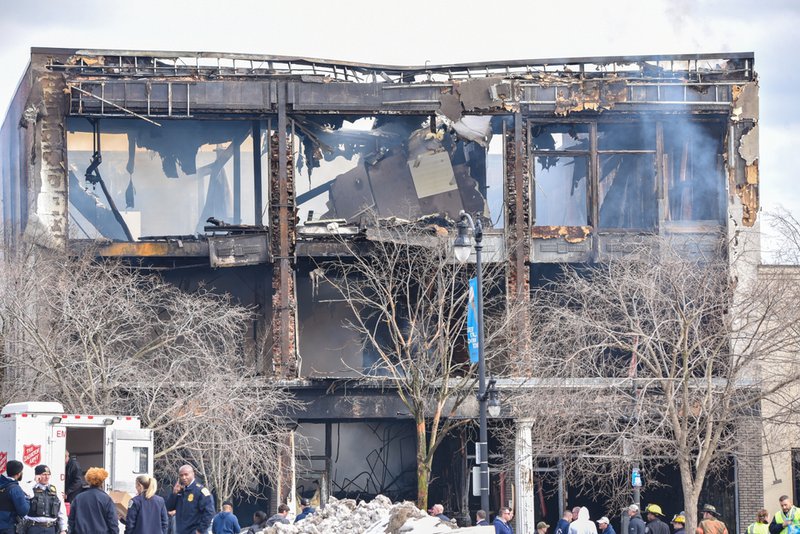When a fire rips through a multi-family building, or a pipe bursts and floods commercial offices, property managers often face a double hit: the cost of repairing the damage and the loss of rental income while tenants can’t occupy the space. This is where loss of rents coverage becomes critical, but many property managers don’t fully understand how it works, what it requires of them after a loss, or how insurance companies frequently deny or severely underpay these claims.
It’s time to clear the fog around this crucial policy element, because as Jay M. Feinman put it in Delay, Deny, Defend, “the fundamental business model of insurance companies relies on collecting premiums and limiting payouts.” Let’s make sure that your business income and your tenants aren’t left hanging in the balance.
What Exactly Is Loss of Rents Coverage?
Loss of rents coverage is a provision under commercial property insurance that reimburses property owners or managers for rental income lost when covered damage forces tenants out. Think of it as “business interruption insurance” specifically for rental properties.
Here’s how it works in broad strokes:
- A covered peril (like a fire, water damage, vandalism, or even smoke damage) damages your property.
- Tenants can’t live or work there.
- You lose rental income during repairs.
- Loss of rents coverage kicks in to reimburse that lost income, subject to policy terms and limits.
But as Bill Wilson reminds us in When Words Collide, “Insurance coverage is ultimately determined by the precise language of the policy.” It’s critical to know your policy details because every word matters.

The Insurance Company’s Playbook: Deny, Delay, Underpay
The OPPAGA report from the Florida Legislature (2010) highlighted a persistent pattern: insurers systematically underpay claims, delay settlements, or deny coverage altogether, leaving policyholders carrying massive financial burdens. Property managers, especially those overseeing multi-family or commercial properties, can be particularly vulnerable.
Insurance carriers may argue that:
- The rental income wasn’t properly documented.
- The building could have been partially occupied.
- Repairs could have been completed faster.
- Tenants moved out for reasons unrelated to the covered loss.
David Skipton, author of The Claims Game, calls these tactics “classic carrier shell games designed to wear you down.” The reality? Insurance companies exist to turn a profit, not to make you whole after a loss.
Policyholder Responsibilities After a Loss
Even if your loss is undeniably covered—say, a burst pipe causing major water damage—your carrier will still expect you to jump through hoops. Failing to comply can jeopardize your loss of rents claim.
Key requirements typically include:
- Prompt notification of the loss to your insurer.
- Documentation of all lost rental income (leases, rent rolls, bank deposits).
- Mitigation of further damage (e.g., immediate water extraction, securing the property).
- Cooperation with the insurer’s investigation and inspections.
For water losses, for instance, certified professionals should handle structural drying and water damage restoration. We hold IICRC certifications in Water Damage and Structural Drying, ensuring proper mitigation work that insurers often require as proof you’re protecting the property from additional harm.
This applies equally to other losses, such as fire or smoke damage. Our IICRC certifications in Fire Damage and Smoke Damage help ensure that mitigation and clean-up meet strict industry standards, vital in preventing microbial growth and controlling repair timelines.
Types of Losses That Often Trigger Loss of Rents Claims
Loss of rents coverage can be triggered by a range of perils, including but not limited to:
- Fire damage (fire suppression, soot, or smoke infiltration)
- Water damage losses from burst pipes, roof leaks, or plumbing failures
- Vandalism-related damage that forces tenant evacuation or major repairs
- Weather-related damage like hail, windstorms, or lightning strikes causing structural damage
Each type of loss requires different documentation and mitigation efforts, and insurers often exploit those technical differences to deny or underpay claims.

The Role of Public Insurance Adjusters: Your First Line of Defense
So, where does a property manager turn when staring down an insurer determined to pay as little as possible?
Enter the independent public insurance adjuster. Unlike adjusters hired by insurance companies, public adjusters are licensed professionals who exclusively represent policyholders in property damage claims. According to the National Association of Public Insurance Adjusters (NAPIA), “Public adjusters level the playing field for policyholders who otherwise face a complex claims process alone.”
Similarly, the American Policyholder Association (APA) advocates strongly for the use of public adjusters to ensure fair settlements in the face of insurers’ bad faith tactics.
Here’s how public adjusters help:
- Review your policy to confirm coverage and applicable limits for loss of rents
- Calculate and document your lost income accurately
- Handle negotiations and communications with the insurer
- Advocate for a fair settlement, pushing back on attempts to delay, deny, or underpay
Property managers often underestimate the complex calculations involved in proving lost rents, especially in properties with variable occupancy rates, seasonal income fluctuations, or commercial tenants with unique lease terms. Public adjusters are invaluable in compiling and defending these calculations.
Don’t Get Left Holding the Bag
If you’re a property manager, facility manager, or commercial contractor, loss of rents coverage is more than a policy add-on—it’s your financial safety net. Yet, as countless experts, like Chip Merlin, warn, the insurance industry’s business model depends on minimizing payouts, even for legitimate claims.
Protect yourself and your revenue stream. Decades of field experience all point to the same truth: Insurers deny, delay, and underpay nearly every claim. Don’t fight them alone.
Schedule a call for a free claim and policy review to ensure you’re prepared for the next loss, and to make sure your loss of rents claim is fully documented and properly paid.
Claim Services We Provide
Velocity Public Insurance Adjusters handles a variety of claim types for both commercial and residential property losses: weather-related damage, theft and vandalism, fire and smoke damage.
Members of
Velocity Public Insurance Adjusters is a Certified Firm with the IICRC.
IICRC Certified Firms are known for their high level of technical experience and professionalism.
With the rapid increase in consumer calls due to the demand for mitigation and restoration projects,
Certified Firms are working in the field every day and have unmatched expertise in complex restoration projects.
Client testimonials
Don't take our word for it, see what our clients are saying about us.
Contact us
Schedule a free, no-obligation, claim and policy review. Every property claim is different, and we'd like the opportunity to provide you with an assessment of your unique situation.
- Indiana
- Kentucky
- Michigan
- Ohio
- Iowa
- Wisconsin
- South Carolina
Use of Information Purpose: We use your information to send mobile messages and respond to your inquiries as necessary. This may involve sharing your information with platform providers, phone companies, and other vendors who assist in message delivery.
Protection of Information: We do not sell, rent, loan, trade, lease, or otherwise transfer for profit any phone numbers or customer information collected through the SMS program to any third party.
Disclosure: We may disclose your information if required by law, regulation, or governmental request, to avoid liability, or to protect our rights or property.
Choices and Controls Consent: Consent to receive automated marketing text messages is not a condition of any service we provide.
Opt-Out: You can opt out of receiving further text messages via the Messaging Service by responding to any of our text messages with any of the following replies: STOP, END, CANCEL, UNSUBSCRIBE, or QUIT.
Your Responsibilities Accurate Information: Ensure that the information you provide is accurate, complete, and truthful. Do not use a false or misleading name or a name you are not authorized to use.
Consequences: If we believe the information provided is untrue, inaccurate, or incomplete, or if you have joined the program for ulterior motives, we may deny you access to the program.












